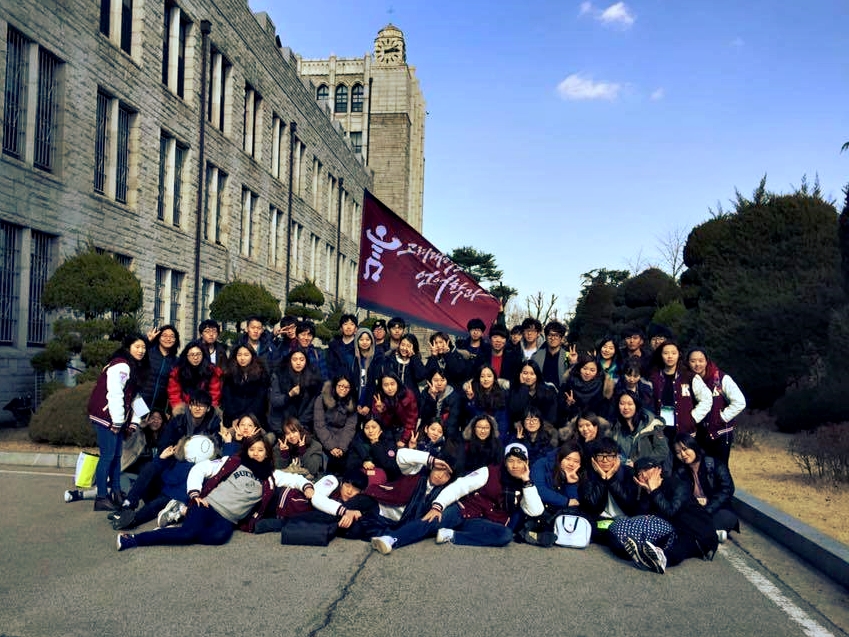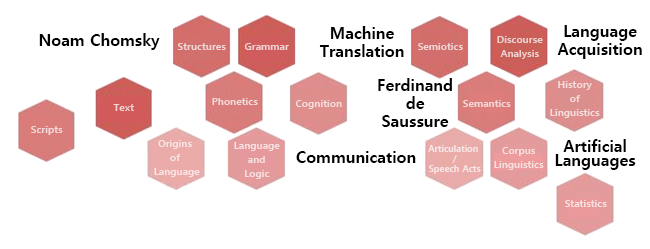Overview
Introduction to Department of Linguistics
- OfficeCollege of Liberal Arts, Room 110A / (02) 3290-2170
- E-mail: lib016@korea.ac.kr
- Homepage: http://kling.korea.ac.kr/kling_en/index.do
- Facebook Page of the student council: http://www.facebook.com/linguisticsbaby/

The Department of Linguistics at Korea University was established in 1989 based on the social need to foster future talents who can take the lead in an information-oriented society and produced its first graduates in 1993.
The Department of Linguistics provides education and research on all aspects of language. These include branches of traditional theoretical linguistics, such as phonetics, syntax, semantics, and pragmatics, as well as contributions to the field of applied linguistics with specializations in first and second language acquisition, computational linguistics (natural language processing, linguistic data processing), and semiotics (language and media, language in advertising).
In addition to English, students learn a second and a third language of their choice among Chinese, French, German, Japanese, Russian, and Spanish. They may also learn computer languages such as Python, Perl, or R based on their own aptitudes and interests.
Linguistics

Affiliated Research Institutes
-
Research Institute for Language and Information (http://kuweb.korea.ac.kr/rili/)
The Research Institute for Language and Information was established in 1993. Our objectives are to research new theories and techniques related to the processing of natural language texts and information, and to develop applications to the fields of humanities and social science. To fulfill these goals, the Institute recruits rising researchers with doctoral degrees in various linguistics-related fields as research professors and conducts joint research and academic-industrial cooperation with domestic and international experts to contribute to the advancement of humanities and linguistics. Active research has been conducted in branches of theoretical linguistics, including phonetics, phonology, morphology, syntax, semantics and pragmatics, as well as in areas of applied linguistics, including language acquisition and education, discourse in cognitive linguistics, sociolinguistics, computational linguistics, comparative linguistics, and corpus linguistics. -
Center for Applied Cultural Science
The objective of this Center is to perform primary activities in the fields of education, research, and application. In particular, the Center aims to foster productive and creative interdisciplinary dialogues among specialists in the humanities, social sciences, arts, and sciences on common themes such as media, communication, and culture.
Career Paths and Graduate Footprints
Graduates of the Korea University Department of Linguistics can advance into myriad areas that include educational institutions, domestic and foreign language education institutes, language treatment centers, the press, broadcasting, advertising, publishing, interpretation, translation, software development, information and data processing, and companies that develop programs for English and Korean language learning. Moreover, based on the analytical skills and creativity acquired through analyzing language and language-related phenomena, graduates can pursue careers at general corporations.
-
Corporate Opportunities
Corporate opportunities include positions in advertising, interpretation companies, companies related to research on marketing and public opinion, companies developing voice technology software, information and data processing companies such as machine translation and automatic Internet searching, educational institutes for English and Korean (Korean studies, Korean culture), companies developing programs for language learning, and general companies -
Education and Research Institute Opportunities
Career paths in education and research institutes include positions in the professoriate, careers at national, university, or corporate linguistics research institutes, work at Korean language research institutes (The National Institute of the Korean Language and others), or research positions at language education research institutes. -
Media, Publishing, and Culture Opportunities
Graduates may go into the field of media, publishing, and culture by becoming newspaper journalists, broadcast producers, reporters, authors, interpreters, translators, critics, or employees at publishing companies. They can also enjoy careers at institutes that develop teaching aids and materials, at translation companies, and at domestic and foreign centers for language education. -
Government, Public Institutes, Legal Profession Opportunities
Graduates may become public officials at government ministries or judicial officers.